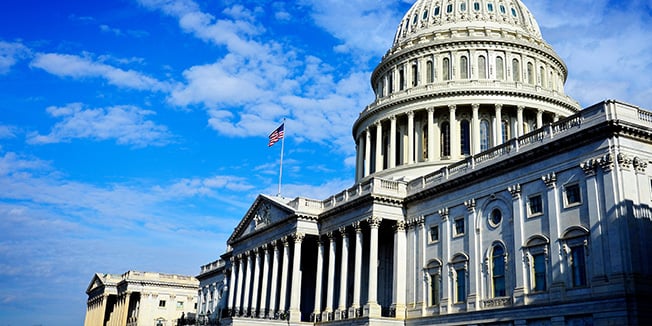
After almost a year of negotiations, President Biden signed the Inflation Reduction Act (IRA) of 2022 into law on August 16. The law, which originated in 2021 as the much larger Build Back Better Act, includes more than $430 billion in tax credits and other incentives intended, among other goals, to promote a variety of “green” energy sources and technologies. The following offers an overview of provisions in the IRA that could benefit or otherwise affect nonprofit organizations. The specific impacts and benefits for an organization will depend on its mission and activities.
Climate-Friendly Facility and Equipment Upgrades
The IRA includes numerous provisions that provide incentives, in the form of tax credits, for individuals and businesses to acquire more climate-friendly equipment, such as electric vehicles. Most of these provisions do not directly affect tax-exempt organizations. At least one section, however, specifically addresses how tax-exempt organizations may benefit from a tax incentive.
Section 13303 of the IRA expands the tax deduction for “energy efficient commercial buildings” found in § 179D of the Internal Revenue Code (IRC). The amount of the deduction is based on three factors: the cost savings provided by an energy-efficient system such as lighting or HVAC, the building’s square footage and the total amount of deductions claimed under § 179D during the preceding three years.
The term “energy efficient commercial building property,” according to § 179D(c)(1), refers to systems that meet the following criteria:
- It is subject to depreciation or amortization.
- It is installed in a building located in the U.S.
- It meets the most recent version of Standard 90.1 from the American Society of Heating, Refrigerating, and Air Conditioning Engineers (ASHRAE) and the Illuminating Engineering Society of North America (IES), which addresses energy-efficient building standards.
- It is installed as part of a building’s lighting system, HVAC, hot water system or the building envelope.
- It has received an official energy-efficiency certification.
The IRA makes several modifications to the above definition. It also amends § 179D to include tax-exempt entities among those that may benefit from the deduction. Since a tax deduction is not particularly helpful to an organization that does not pay federal income tax, the IRA allocates the deduction to “the person primarily responsible for designing the property in lieu of the owner of such property.”
Environmental Programs and Incentives
Nonprofit organizations that promote solar energy, clean air and water and other environmental concerns will find much in the IRA to celebrate, such as the following:
- Section 13101 of the IRA modifies and extends the tax credit for electricity produced from “qualified energy resources,” defined by IRC § 45 to include wind, solar, geothermal, hydropower, biomass and other sources.
- Section 13601 reinstates the Hazardous Substance Superfund excise tax on crude oil and various petroleum products found in IRC § 4611. The purpose of this tax is to provide funding for cleanup efforts at Superfund sites, but Congress allowed it to expire more than two decades ago. The new law removes all references to an expiration date for the tax. It also extends the date that the Superfund may receive advances to December 31, 2032. The reinstated excise tax will take effect at the beginning of 2023.
Environmental Justice Projects
The IRA contains multiple provisions that address environmental problems faced by marginalized communities. Nonprofit organizations that work in the environmental justice field may find new programs that align with their missions. Examples include the following:
- Section 50231 provides $550 million over the next 10 years to the Bureau of Land Management “for grants, contracts, or financial assistance agreements for disadvantaged communities” to improve access to clean water in people’s homes in areas affected by drought.
- Section 60103 amends the Clean Air Act to establish a $7 billion Greenhouse Gas Reduction Fund “to enable low-income and disadvantaged communities to deploy or benefit from zero-emission technologies.”
Do you have questions on the Inflation Reduction Act and what it might mean for your organization? Connect with us by using our contact form or call Freed Maxick at 716.847.2651.
